Claude Bernard – Looking back on an inspirational career in immunology
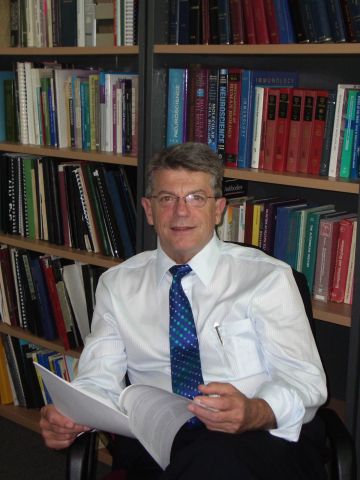
“I’ve had a wonderful career in science,” beams Claude, “I wish a lot of people the same pleasure of going to work every day like I have!” Claude always knew that he would have a career in science, but with a medical focus, “I knew early I didn’t want to do medicine as I knew I was more interested in discovery.” Claude was born and bred in Paris, and it was where Claude’s love for science began – he completed his undergraduate degree there. As Claude loved to ski, he decided to relocate to Montreal, Canada to study and complete his French National Service. He really thought he was being clever and laughs telling the story, “I didn’t count on it being -40°C making it difficult to be outside, let alone ski!” Nevertheless, Claude endured the cold Arctic winters of Montreal, finished his national service and completed his masters and PhD there.
Claude’s decision to present at the 1st Congress of Immunology in Washington DC as a post-doc was what ultimately instigated his course to Australia. He says, “I caught the eye of a prominent Australian researcher –Sir Gus Nossal. Gus encouraged me to apply for a post-doc at WEHI which was at the time when immunology had just taken off in Australia and was being recognised as its own discipline. WEHI was then under the leadership of Professor Ian Mackay, the visionary of clinical research on autoimmunity and treating autoimmune diseases, and was full of international post-docs. There were over 50 applicants for the position – I was very lucky.” Here, Claude got to work with the list of the who’s who of the immunology world. “My colleagues were Graham Mitchell, Ken Shortman, Jacques Miller, Don Metcalf, Noel Warner – it was an amazing time.” It was also when Claude published his research in the highly acclaimed journals, Lancet and Nature for the first time.
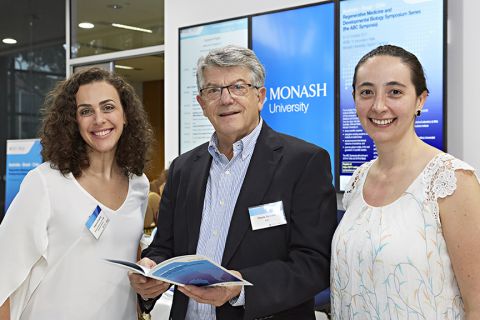
After a few years, Claude returned to Europe. He seized an opportunity to be a part of a new exciting place – the Basel Institute of Immunology, which was a fantastic new institute with an original and unique concept – it funded basic science and fostered a relationship between academia and industry. But Australia was calling. Claude was lured back to Australia in 1973 by LaTrobe University, with a promise of his own research lab and an appointment as a Research Fellow. He held a joint appointment with the Department of Psychology (led by his mentor and good friend, the late Professor George Singer) and the Department of Agriculture. It was here where Claude busied himself working in the field of neuroimmunology, doing very important, highly regarded work addressing the question of why the immune system attack itself. It was also here where in 1981 he was awarded his first NHMRC grant, (he has held an NHMRC grant his entire research career since then) and by 1991, Claude was appointed as a Senior Research Fellow. By the year 2000, Claude’s hard work was further recognised, and he was promoted to Professor and was awarded the first personal chair at the Brain Research Institute, Melbourne.
In 2005, Claude decided it was time for a move. The Dean of Medicine at Monash University offered Claude a position at Monash Health, specifically, at the Stem Cell Centre, which was a more clinical orientated organisation which had wanted Claude’s research expertise. A short time later, he was head-hunted to join ARMI by Professor Nadia Rosenthal (the former Director of ARMI) as Deputy Director and here, he has stayed until announcing his retirement this year.
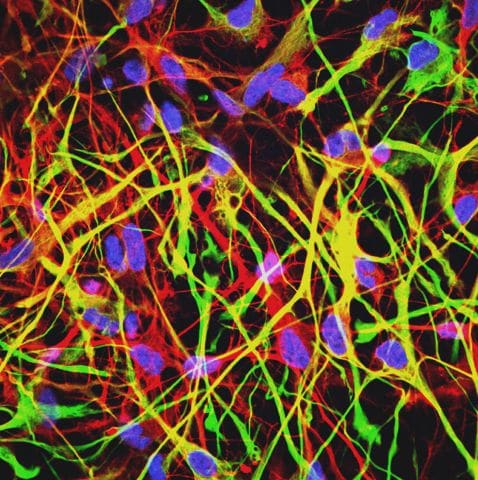
Claude spent many years of his research career working on Multiple Sclerosis (MS) and upon reflection says, “I would do it all exactly the same – I have no regrets, I have had an amazing career and gone on an amazing journey”. Claude is very modest, he has made some remarkable inroads into understanding MS through his hard work and dedication: he established the first MS mouse model, elucidated the role of T-cells in MS, and led the world-first research on the genetic reprogramming of human MS patient cells. This effectively created a limitless supply of human cells with the disease that researchers could use as a tool to investigate MS and to develop novel therapies to treat the disease. He says of it all, “although my contribution is small, we have helped people with MS, it would have been great to find a cure or cause but was not to be!” Claude has also been a major contributor to one critical medicine making it to market to treat MS. The work he did early in his career on B-cells and T-cells was critical to the development of this treatment. Claude says he is still optimistic that stem cell therapies will remain part of the mix as a treatment option for MS. He notes that “In the last 10 years, there has been so much progress in drug development to treat MS patients, as well as progress around antibody therapies and knowledge around B-cells that are all bringing a new quality of life to MS sufferers. It’s not a cure but delaying times between relapses and decreasing the severity of these relapses is a great step forward. One day I believe we can cure MS – we need to stay optimistic. We need to ensure the MS patients are not forgotten.”
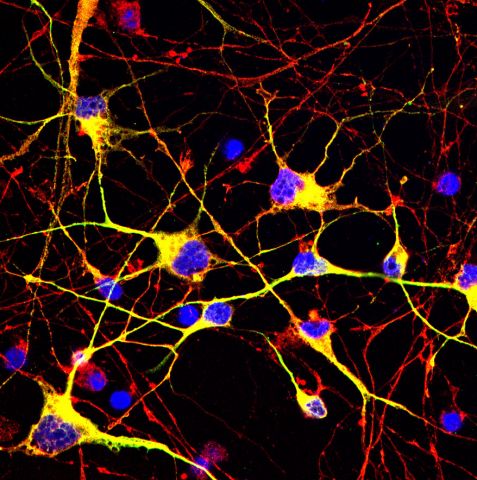
What are Claude’s tips to young researchers? “Success does not come from one person. Luck, ability to mobilise colleagues as well as inspire them is the way forward – some easy but some not so easy!”. He says, “you need to be talented and educated and fully committed to doing science research now – I’d say, think more carefully and strategically, it’s harder than it has ever been, it is so much more competitive now than ever, so before you embark on a research career really ask yourself, is this what I want? Always remember that professional and personal development are equally important!”
Claude believes it is now much more challenging to obtain funding to support research than ever before. To be successful, he believes, “you must love the bench – unless you are in the lab, you can’t see the potential problems, so you can’t be there to help solve them, you must be present at the coal-face to support and mentor your colleagues properly! Science is a business, you must show yourself, sell your science, make yourself known, approach colleagues, build relationships, learn more and keep up with new research and new technology- it moves so fast.”
After supervising countless Honours students, more than 30 masters students and approximately 23 PhD students, what now for Claude? Claude has accepted an Emeritus Professorship at Monash University within ARMI, as well as a position on the Leadership Advisory Board of ARMI. Claude will also continue to do some pro-bono work in China and India, where he helps lift the quality of science education and teaches medical students and helps formulate grant applications for PhD students. “I will continue to do the work I love, particularly around mentoring staff and students”.
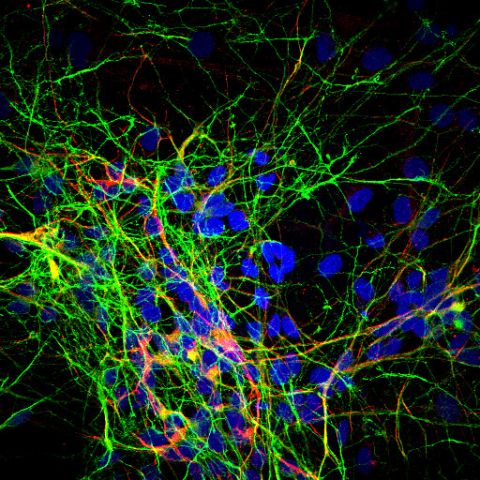
Claude is also looking forward to indulging in his other great loves: his family (spending time with his grandchildren), the arts (Claude loves the opera – Tosca a favourite), travelling (he says he has a huge number of slides to digitise), and some reading. Claude also loves to cook and collects 15th Century antiques – one of his prized artefacts is an Initiation Mask from Papua New Guinea.
Did you know that Claude is an identical twin? If in Paris and you see “Claude” and he ignores you, maybe try “Michel” – that might work!
